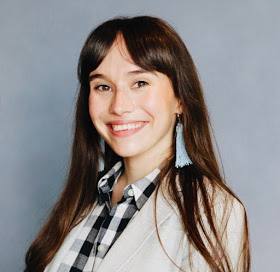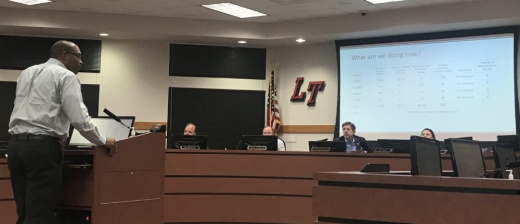The board of trustees continued the discussion Jan. 15 on Lake Travis ISD’s randomized drug testing program in its second year of implementation.
An update on the program was previously presented during a Nov. 21 board meeting, showing one positive result districtwide during the test’s first administration. The district implements the tests in six administrations, testing 7% of the population or about 170 students at the high school level at a time.
Multiple questions arose in the November meeting regarding the ability to test students who were not present during the testing day, the possibility of adding a nicotine test and the ability to test every athlete or similar subgroup once per season.
After further researching these concerns, Superintendent Brad Lancaster led a discussion Jan. 15 to revisit these questions. He confirmed that the district would have the ability to test a student a few days after the initial administration if that student missed the test but was present during the school day’s first period.
The current plan, he said, is to wait until the next scheduled administration to test those absent students; however, board members shared the concern that students are finding ways to avoid the test. The district determined that around five students were missing the testing administration after being present during first period, according to Elizabeth Deterra, assistant superintendent of learning and teaching services.
The board also discussed the possibilities of testing for vaping, nicotine and associated chemicals. LTISD utilizes the drug testing company Southwest Consortium, a certified testing company capable of testing for nicotine through urine samples.
Lancaster confirmed that while the district can test for nicotine, there is no federally certified test for vaping. The test would not be able to distinguish whether the nicotine was ingested through a vape pen, a cigarette or another tobacco product.
The addition of nicotine tests would increase the program’s total cost from $28,080 to $34,320 if tests were to be administered at the current rate.
“The $6,200 is not cost-prohibitive. What we’ll see is an increase in students being penalized,” Lancaster said, going on to ask, "Do we punish children for an addiction as opposed to a misbehavior?”
Trustee Bob Dorsett made the suggestion that the penalty for testing positive for nicotine could be as simple as calling the student’s parent or guardian.
Lancaster reiterated that he would advise the board not to signal out a specific group, such as athletes or band members, for testing, saying that he believed doing so would be a liability for the district.
“Nothing in the results we’ve had all last year indicates that our athletes are testing positive any more than any other group; in fact, they’re testing lower,” Lancaster said
The board also considered increasing the number of administrations while decreasing the amount of students tested each time. This would result in greater visibility for the program, further giving students the ability and reason to say no to illicit substances.
Gordon Butler, principal of Lake Travis High School, said this method would be a possibility if approved, calling the tapered administration schedule a happy medium. He added that as long as the district decreased the number of students tested each time, increasing the administrations would not pose a problem.
Any changes to the drug testing program would not go into effect until August, and no formal decisions were made during the Jan. 15 meeting.
Select your community
Become an InCIder
News
- Austin Metro
-
Houston Metro
- Houston Metro Home
- Bay Area
- Bellaire | Meyerland | West University
- Conroe | Montgomery
- Cy-Fair | Jersey Village
- Cypress
- Heights | River Oaks | Montrose
- Katy | Fulshear
- Lake Houston | Humble | Kingwood
- New Caney | Porter
- Pearland | Friendswood | Manvel
- Spring | Klein
- Sugar Land | Missouri City
- The Woodlands
- Tomball | Magnolia
- Dallas | Fort Worth Metro
- San Antonio Metro





